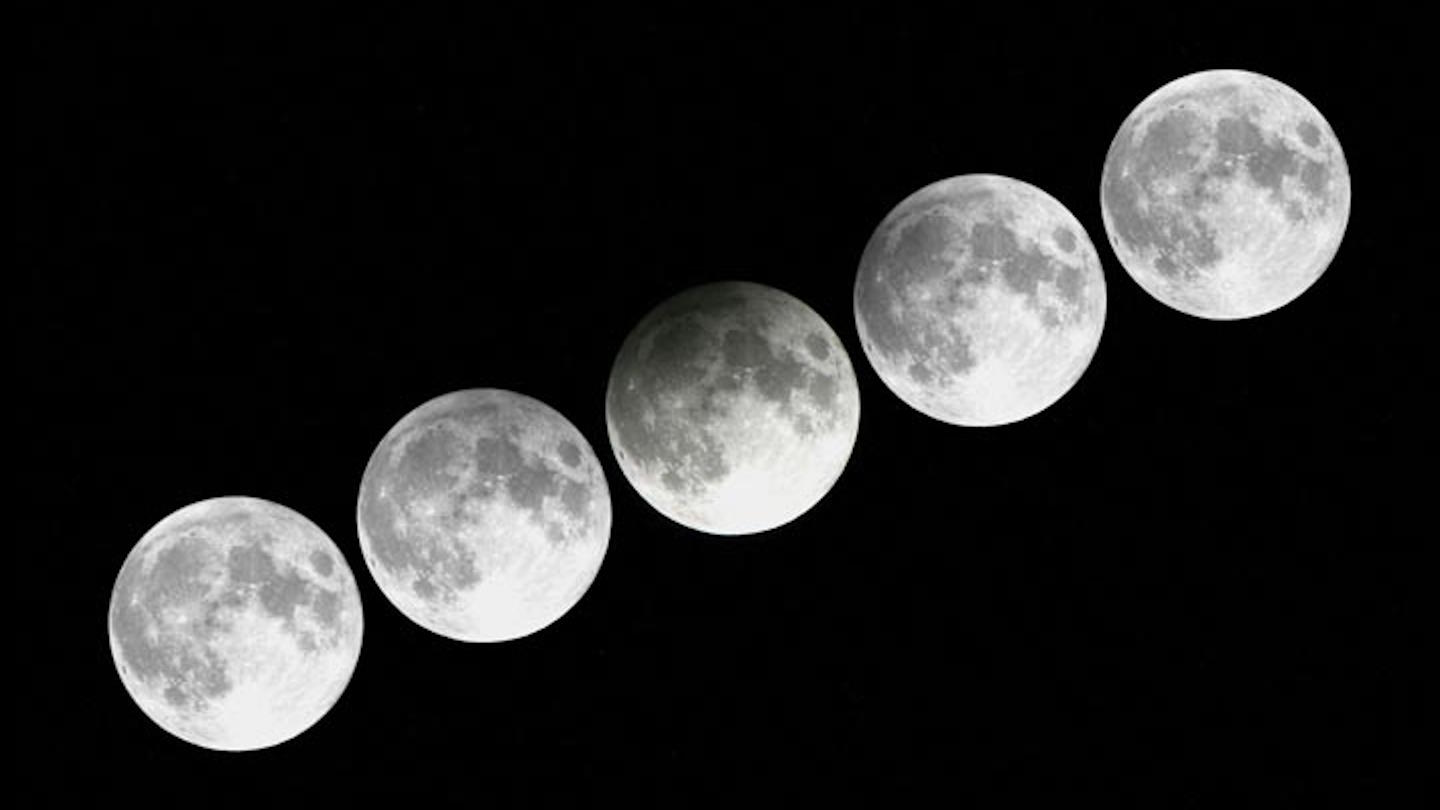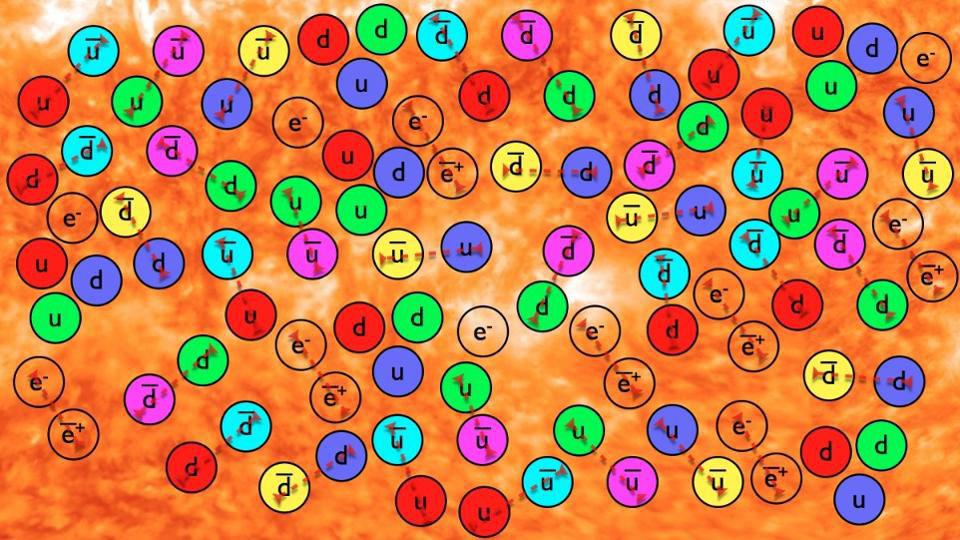Black holes should be thought of as “empty places” rather than “dense objects.” While they are indeed formed from incredibly dense objects (collapsed stars), the black hole itself is nothing.
Black holes could have played a crucial role in the emergence of life. Ironically, the Solar System is in orbit around a supermassive black hole located in the center of our Milky Way galaxy. And one day, we might fall into a black hole.
If you were out in space exploring and you didn’t realize you were coming upon a black hole, you would not notice that anything terrible was about to happen. Eventually, however, you would succumb to a terrifying fate.
Janna Levin: A very common misconception I think about black holes is that they're incredibly dense objects. They are indeed formed from incredibly dense objects: collapsed stars. But the black hole itself is nothing. Our sun is a million and a half kilometers across. But were we to crush the Sun to smaller and smaller scales, we would have to crush it to less than six kilometers across — the entire mass of the Sun.
At that point, the Sun itself is forced to continue to collapse, leaving behind nothing. There's no hard surface. There's no material from the Sun that made it — it's literally empty space. If you get close to a black hole, you might not even realize something truly terrible is about to happen. And so there's a deep sense in which we can think of a black hole as a place more than it is a thing.
I'm Janna Levin and I'm a professor of physics and astronomy at Barnard College of Columbia University, and my most recent book is "Black Hole Survival Guide." Maybe you wanna take a minute just to define 'curved space-time.' Let me just try something: So Einstein's equations describe how space and time respond to matter and energy. If I throw something around the Earth, I see that it travels along an arc — and if I throw it fast enough, I can put it into orbit.
Consider something like the International Space Station. It is launched at 17,500 miles an hour onto a curve that it is falling along freely. The engines are turned off, it is literally in free fall, and it's a perfect circle. That is an illustration of a shape in the curves around the Earth. These orbits, these arcs that things are falling along are the curves in spacetime.
So, if you were out in space exploring and you didn't realize you were coming upon a black hole, you could safely get very close to that black hole and not notice anything terrible was about to happen. The black hole is like a lens. You would see the light from around the black hole distorted by the curvature.
But if you realized very late that you were indeed near a black hole and you wanted very much to escape, you would have a real problem with your fuel rations. It's very expensive to launch things away from a gravitational object. It's very expensive to launch spacecraft off the Earth; it requires a tremendous amount of energy. If you were foolish enough to veer too close, there is no amount of thrust from your jet pack or fuel in the tank of your spacecraft that will actually be able to satisfy the requirements of escaping from a black hole.
If you get close to a black hole, you realize that not only is space curved, you also begin to notice that time has warped. We call it 'time dilation.' The pause between ticks on your clock, between breaths, between the firing of thoughts, all of these appear to slow down relative to somebody far from the black hole. For you, your experience of time is quite normal because you and your clock are synced. But for somebody far away, it appears that your clocks are slowing down. And as you edge closer and closer to the shadow, it will appear to somebody far away that your clocks have stopped ticking entirely. And as you cross and get further and further inside the black hole, the orbits that things can navigate on become smaller and smaller and smaller.
And eventually, you will get so close that there are no curves that lead outward. None. All paths lead inwards. And that defines a kind of "shadow" around this collapsed object, and that shadow determines what we call the 'event horizon,' the region beyond which no information will ever get out; not even light itself can ever escape.
It may surprise people to learn that the larger the black hole is, the safer you'll be for the longest period of time actually. You could cross the event horizon and you could watch the galaxy evolve behind you, and you could take notes and write poetry, and have a terrible sense of existential dread. You might be able to do that in the biggest black hole imaginable, maybe for a year if you had the supplies to keep yourself alive, before you hit your ultimate fate in the center.
Our story about the black hole leads, mathematically, to the prediction of a 'singularity,' which is a region in space and time where the curvature is responding to an infinite density. All of the matter is now crushed so catastrophically that it is creating an infinite curvature in space time. And as you race towards this singularity which you can't avoid, you will notice that space is trying to drive the atoms in your body closer together towards that singularity. It is also trying to pull you apart.
You would suddenly become aware that the curvature in space was stronger at your feet than it is at your head. You would feel your feet pulling away from your head. Eventually, you would break into pieces. So it's as though you're being squeezed and pulled apart. You're literally pulverized. Ultimately, even the atoms are broken apart to their fundamental quantum bits. And as you approach closer and closer to the singularity, you will in a finite time reach the end.
Now, if the singularity is real, it will be as though your quantum particles have spilled out of the Universe altogether, and essentially have ceased to exist. It's as though all of that matter is fundamentally lost. And that seems not only metaphysically terrifying, but also from the perspective of a scientist or a physicist, it seems wrong, and in violation of some of our core principles.
Now, it might be our core principles collapse and we have to just accept it for what it is: that things fall out of the Universe and cease to exist. Or it might be their principles are solid and strong, and that we should be using them to understand how to rewrite the ultimate fate of the material that falls into a black hole.
Black holes could be a really crucial link in the story that gets from the Big Bang to us, to the emergence of life. Not only that, we are in orbit around that supermassive black hole in our own Milky Way galaxy. And one day, we might fall into a black hole. That might be the ultimate fate of these atoms on this solar system. So, I think it should give us all pause to realize that we're all on this rock together that we're all progeny of this Universe — and that we may well all end up in the center of that black hole.






